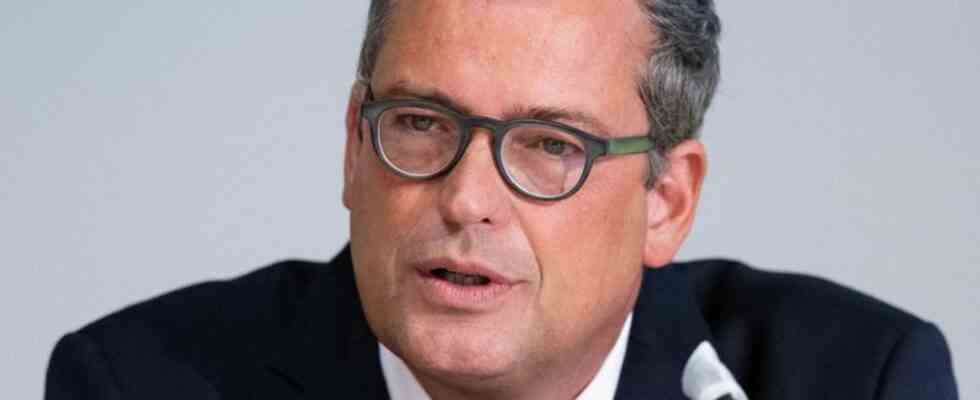Science
Leopoldina President calls for more speed in climate protection
Gerald Haug, President of the Leopoldina, speaks during an event in Halle (Saale). photo
© Hendrik Schmidt/dpa
The President of the National Academy of Sciences Leopoldina is a climate researcher and is pushing for more speed. He also worries about losing entire strands of industry.
The President of the National Academy of Sciences Leopoldina, Gerald Haug, has called for significantly more speed in the expansion of renewable energies, but also in the phase-out of coal. The director at the Max Planck Institute for Chemistry also warns of the end of the primary industry, especially the chemical industry in Germany, and criticizes the “increasing over-regulation” of the EU.
“We have to invest massively in renewables. That was far too slow,” said the climate researcher at the German Press Agency in Mainz. “We are getting off everywhere without getting on,” the scientist stated. “If the southern roofs were covered with photovoltaics, we would have an expansion by a factor of four.” Haug suggested that investment programs, tax incentives and rental models for people with less money would be helpful. “If the EEG surcharge is dropped and you approach it with market-based tools, a lot can happen very quickly.”
“Many more renewables, more gas and hydrogen power plants”
“We have to force the phase-out of coal – even if we need a little more this winter and next,” said Haug, referring to the war in Ukraine. “For our climate goals, it is important to really phase out coal by 2030. For this we need many more renewables, but also more gas and hydrogen power plants.”
“We need more gas-fired power plants, they have to be hydrogen-ready,” emphasized the climate researcher. “But we also need new infrastructure for hydrogen and bound forms of hydrogen,” said the Leopoldina President. “We need a modern hydrogen infrastructure. Germany must play a leading role in this.”
“We will continue to need natural gas for at least the next 20 years,” stated Haug. “We are currently producing around five billion cubic meters of natural gas in Germany, and by using modern drilling technology we could quadruple the production volume over the next two years and thus cover a quarter of our total requirements.” Together with the LNG terminals available from January, “German gas requirements can be covered promptly via the world market”. “At some point, natural gas will be too good to burn, but we need it in basic industries, for example to make fertilizers or plastics.”
Could “lose entire industrial strands”
“I’m very worried that if we don’t act now, we’ll lose entire industrial sectors – especially in the raw materials industry,” warned the Leopoldina President. “That would mean a much higher dependency on Asia and especially China.” For example, outsourcing the chemical industry completely from Germany and Europe would be a “fundamental mistake” – especially in view of the goal of climate neutrality by 2045.
The over-regulation leads to “incredible uncertainties” in the industry. Haug spoke out in favor of anti-cyclical investments, for example in research, innovation and science, as well as tax breaks for such investments. Otherwise there would be a risk of dependencies that are just as great as those in the energy and semiconductor industries, including in the basic materials industry.
“The National Academy of Sciences Leopoldina bundles knowledge and contributes its scientifically sound findings – always in a transdisciplinary manner,” Haug explained the task of the Leopoldina. “It’s always our elected representatives who have to make the decisions.” And: “Science can contribute its part through statements to bring scientific perspectives into the political deliberation.”

